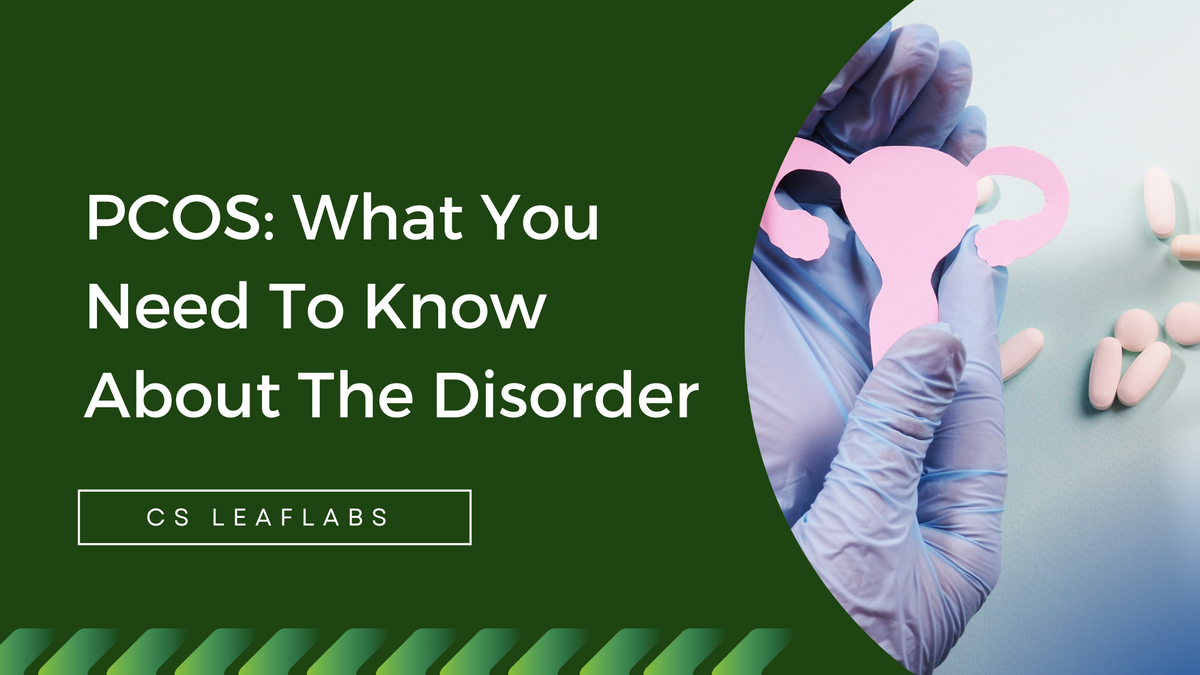
In 2019, University Putra Malaysia conducted a study with a total of 675 female samples and it shows the prevalence rate of PCOS was obtained as 12.6% among Malaysian women could be a sign of an emerging public health issue in Malaysia.
The prevalence of PCOS is increasing the world over and is showing a galloping increase in parallel with the rising prevalence of type 2 diabetes mellitus. It affects 4%–20% of women of reproductive age worldwide.
What is PCOS?
Polycystic ovary syndrome (PCOS) is a hormonal disorder that affects a large number of women of reproductive age.
Women with PCOS may have irregular or prolonged menstrual cycles, as well as high levels of male hormone (androgen). The ovaries may develop a large number of small collections of fluid (follicles) and fail to release eggs on a regular basis.
What are the symptoms of PCOS?
Irregular period
Periods that are irregular. The most common symptom of PCOS is infrequent, irregular, or prolonged menstrual cycles. For instance, you could have fewer than nine periods per year, more than 35 days between periods, or abnormally heavy periods.
Hormone imbalance
Excess androgen and elevated levels of male hormones can cause physical symptoms such as excess facial and body hair (hirsutism), severe acne, and male-pattern baldness.
Ovaries with cyst
Ovaries with polycystic cysts. Your ovaries may be enlarged, with follicles surrounding the eggs. As a result, the ovaries may cease to function on a regular basis.
Insulin resistance
Women with PCOS are often insulin resistant; their bodies can make insulin but can't use it effectively, increasing their risk for type 2 diabetes.
How is PCOS diagnosed?
Pelvic exam
A pelvic examination. The doctor examines your reproductive organs visually and manually for masses, growths, or other abnormalities.
Blood Test
Blood tests are performed. Hormone levels in your blood may be measured. This testing can rule out potential causes of menstrual irregularities or androgen excess that mimics PCOS. You may be subjected to additional blood tests to assess glucose tolerance as well as fasting cholesterol and triglyceride levels.
Ultrasound diagnosis
A type of ultrasound. Your doctor examines the appearance of your ovaries as well as the thickness of the uterine lining. In your vagina, a wand-like device (transducer) is inserted (transvaginal ultrasound). The transducer generates sound waves, which are then translated into images on a computer screen.
What are the treatments for PCOS?
Because irregular periods are a common symptom of PCOS, the doctor will prescribe a contraceptive pill or birth control to help with the irregular period problem, but it will not help you in the long run because you will become dependent on the contraceptive pill. Furthermore, there are numerous side effects if you use the drug medication for an extended period of time.
Based on studies and the traditional approach there are several herbal ingredients you can consider to manage PCOS symptoms in order to help with hormonal imbalance issues.
Ashwagandha
Manage PCOS symptoms such as thyroid dysfunction, insulin resistance, inflammation, stress and anxiety, and cholesterol.
Pueraria Mirifica
It content phytoestrogens, which studies showed improvement in PCOS symptoms & beneficial effects on hormonal levels
Curcumin
Curcumin may improve glycemic control and lipid metabolism in patients with PCOS and metabolic abnormality without significant adverse effects.
Amla
Amla is a good source of iron, calcium, and Vit-C for PCOS, it flushes out toxins, regulates the menstrual cycle, and causes hormonal balance.
Cinnamon
Cinnamon contains a natural chemical called cinnamaldehyde, which studies show increases the hormone progesterone and decreases testosterone production in women, helping to balance hormones.
Saffron
Helps you manage your stress levels and lower that cortisol within no time.
Do check the combination of these herbs in one formulation at Feminira!
Reference:
Deswal R, Narwal V, Dang A, Pundir CS. The Prevalence of Polycystic Ovary Syndrome: A Brief Systematic Review. J Hum Reprod Sci. 2020;13(4):261-271. doi:10.4103/jhrs.JHRS_95_18
Dashti S et al.Prevalence of Polycystic Ovarian Syndrome in Malaysian Women J Midwifery Reprod Health. 2019; 7(1):1567-1575
